- Home
- Joy Fielding
Grand Avenue Page 4
Grand Avenue Read online
Page 4
“Whitney’s head’s still too big,” Ariel protested loudly.
“Which brings us back to oral sex,” Vicki said, returning her attention to Barbara and Chris.
“What? Whoa! How’d we get back there?”
“It’s the surest way to have an orgasm. Trust me, a patient tongue is better than a stiff prick any day. Your husbands like to do it, don’t they?”
Chris and Barbara exchanged furtive glances. “Mostly, Ron likes to be on the receiving end,” Barbara admitted as Chris looked toward the floor. The truth was that Tony refused to perform oral sex at all.
“Who was it who said it’s more blessed to give than to receive?” Vicki asked.
“Not Ron,” Barbara told her.
“I think it was Jesus,” Chris said.
“Are you guys still talking about sex?” Susan asked, coming back into the room.
“Apparently even Jesus talked about it,” Vicki said.
“You’re going to burn in hell. You know that, don’t you?” Barbara laughed.
“We’re all going to burn,” Chris concurred, thinking this was probably true.
“Something burning?” Tony asked, bounding into the kitchen, kissing Chris on the forehead before heading for the fridge.
“Is the game over?” Chris watched her husband grab a handful of ice-cold beers from the freezer.
“Are you kidding? We’ve only just begun to fight.”
“Who’s winning?”
Tony winked. “The good guys.”
“Isn’t that an oxymoron?” Vicki asked.
“Watch who you’re calling a moron,” Tony warned playfully. “What are you girls talking about in here anyway?”
“Politics,” Barbara answered with a straight face.
“Literature,” Susan said.
“Well, that certainly explains all the hootin’ and hollerin’ going on,” Tony said on his way out the kitchen door.
The women laughed, watching him leave.
“Are you going to tell me that sexy man doesn’t like to give head?” Vicki asked. “I think that may be grounds for a divorce. Speaking of which, I have a joke,” she continued almost in the same breath. “Why is divorce so expensive?”
“Why?” the women asked, waiting.
“Because it’s worth it.”
Chris could still hear the women laughing long after everyone had left. She closed her eyes, savored the sound.
“Chris,” Tony called from upstairs. “Aren’t you coming to bed?”
“I’m just finishing up with the dishes,” Chris called back, removing the last of the beer glasses from the dishwasher, returning them to their shelves.
She moved slowly, enjoying the feel of the warm glass in her hands, captivated by the gentle curve of the tall, slender glasses. It had been a good party, she thought. Everyone had contributed something to the dinner—Barbara an eggplant dip, Susan her famous twice-baked potatoes, Vicki a spectacular chocolate mousse, although she’d admitted her housekeeper had made it. And everyone had raved about Chris’s new recipe for prime rib. Just the right amount of garlic, served just rare enough. Not a slice left over, Chris realized, although she had enough salads to last till spring.
Even if Cincinnati had ultimately lost to San Francisco, 26–21, Tony was happy, having perversely bet on the 49ers and collected $60 from his fellow revelers. There’d only been a few tense moments. “What were you girls really talking about?” he’d asked several times during the evening. “I saw Vicki looking at me kind of funny,” he remarked at one point. “You say anything to her?”
“Of course not,” Chris told him. “Don’t worry, Tony. It’s okay.”
Was it?
Chris closed the cupboard door, left the kitchen, and walked through the darkened living room, the smell of buttered popcorn bouncing off the sofa and chairs, following her into the front hall. She jiggled the front door to make sure it was securely locked, then opened it instead, stepped outside into the cold air. It was a clear night. A three-quarter moon illuminated an ink-blue sky heavy with stars. Snow covered the front lawns of the single-family, old-fashioned Georgian-style homes. Chris looked up and down the quiet street. Four houses down, the Albrights were replacing their old roof with cedar shingles, their decaying brick chimney with gleaming new copper. Tony said they were crazy, that the copper would eventually turn green, look ugly. Chris disagreed. She thought it would look nice.
Other changes were coming. The O’Connors, who lived halfway down the block on the other side of the street, were talking about adding another room to their red-brick house in the spring, an idea that was causing considerable muttering among several of the neighbors who thought the integrity of the neighborhood might be threatened. “Some people are just uncomfortable with change,” Susan had remarked earlier, adding that she and Owen had been toying with the idea of extending their kitchen three feet into the backyard. Chris had suggested a glassed-in solarium. She’d always loved glassed-in solariums.
“Chris?” Tony called from inside the house.
She turned toward the sound of his voice, knew she should probably go back inside. It was late. Most of the houses were already dark, their inhabitants bedded down for the night. Was anyone watching her from behind the neat row of quaint mullioned windowpanes?
What if she were to start running right now? Just close the door behind her and take off down the street? Would anyone see her? How far would she get without a coat or winter boots, without money or identification? How long before Tony realized she was gone and came looking for her? How many miles could she put between herself and her children before she had to turn back? How could she leave them? And where in God’s name would she go?
“Chris?” Tony called again.
She heard him moving around inside, felt his footsteps on the hardwood floor of the foyer. Her body swayed toward the street, as if she were standing on the high ledge of a building. One foot lifted into the air, poised for flight. Go, a voice inside her urged. Don’t look back.
The door opened behind her.
“Chris?” Tony asked. “What are you doing out here?”
Wordlessly, Chris allowed herself to be drawn back inside the house.
“It’s freezing outside, for God’s sake.” Tony began rubbing her arms with his hands. Only then did she become aware of the cold. “What were you doing?”
“Nothing. Just looking. It’s such a beautiful night.”
“Are you feeling okay?”
Chris nodded.
“You sure? You’ve been acting kind of funny the last few days.”
“I’m fine.” Chris noted the worry in his eyes. Her hand reached out to caress his cheek. “The kids okay?”
“Sleeping. Like babies.” He smiled, his arms wrapping around her waist. “Speaking of which …” He lowered his chin, raised one eyebrow.
Chris felt the air immediately constrict in her lungs. “Tony, this probably isn’t the best time to be thinking of having another baby.”
“I’ll find another job, Chris. If that’s what you’re worried about.”
“I’m not worried.”
“Good. Then what’s the problem?”
“No problem,” Chris said quickly.
“Good.” Tony tightened his grip on her waist. “Then let’s get to bed.”
Three
Excuse me. Are you Barbara Azinger?”
Barbara looked up from the menu she’d been studying for the past half hour—she’d been reading it for so long, she should have it memorized by now, she thought—and nodded. “I am,” she said, her voice even, soft, her large brown eyes peeking at the waiter from beneath heavily mascaraed lashes. Did the young man find her at all attractive? she wondered, turning her head just slightly to the left, affording him a glance of what she’d always considered her better side. Did he even suspect she’d once worn the crown of Miss Cincinnati, that she’d been second runner-up to the title of Miss Ohio? Her eyes darkened. It was entirely possible, she realize
d, that the young man hadn’t even been born when she was proudly transporting her overflowing bouquet of red roses down the runway.
“There’s a phone call for you.” The waiter, despite his youth, had already perfected the art of bemused superiority endemic to such establishments as The Foxfire Grille, located on Belvedere Street in the heart of the Mount Adams District. A reporter had once likened the admittedly charming old quarter of Cincinnati to San Francisco, and the district had never quite recovered, wearing its pride like a suit of heavy armor that occasionally threatened to overwhelm the tiny area altogether. “At the bar,” the waiter said, pointing toward the front of the narrow terra-cotta-tiled restaurant with his chin.
Barbara removed the peach-colored linen napkin from the skirt of her powder blue suit, careful to smooth out the wrinkles that had gathered at her hips, an unpleasant confirmation that the scale she’d stepped on first thing this morning was probably right—she’d put on two pounds in as many weeks. Nonsense—it was just a little water retention, she told herself, listening to the sound of her high heels clicking against the tile floor as she made her way to the bar, reliving that fabulous walk down the runway in a bathing suit and heels very similar to these, feeling the eyes of the other patrons following her. Barbara lifted the receiver to her ear, careful not to disturb her imaginary tiara. Do they recognize me? she wondered. Or are they just feeling sorry for me? They’ve seen me sitting alone at my table for the better part of thirty minutes. They suspect I’ve been stood up. Barbara pushed her long, dark hair away from the phone, but her hair, secured by an invisible wall of high-powered spray, barely moved. Maybe it was Susan calling to say she could make it after all. “Hello?”
“Barbara, it’s Vicki. I’m really sorry. There’s no way I can make lunch.”
“What?”
“I’m stuck in this stupid meeting. I didn’t call earlier because I kept thinking it was about to end, but they’ve just ordered in sandwiches, and there’s no way I’m going to be able to get away. And I was really looking forward to the butternut-squash ravioli, so you have to have it for me. It’s to die for. And apologize to Chris and Susan. I’m really sorry. Oh, God, they’re calling me back. Gotta go. Bye.”
Vicki hung up before Barbara had the chance to tell her that Susan wouldn’t be coming either. Apparently Susan had been up half the night with the girls, both of whom were suffering from nasty spring colds, and so she hadn’t had time to finish an essay that was due on her professor’s desk by the end of the day. “I’m really sorry,” she’d said. “Give my apologies to Vicki and Chris.”
What can you do? Barbara thought with a shrug, returning to her table. She couldn’t very well expect Vicki to put important clients on hold in favor of a frivolous lunch with friends, nor could she expect Susan to be late handing in an important essay. Thank God for Chris, she thought, sitting down and immediately biting into another roll. Except where was Chris? It was very unlike her to be this late.
Ten minutes later, Barbara was still waiting, and debating her next move. She’d already finished all the rolls in the basket, drunk two glasses of mineral water, had the waiter remove two sets of cutlery. Where on earth was Chris? “Excuse me,” she said, as she wound her way gracefully back toward the bar, “could I make another quick call?”
The bartender, a young woman wearing black trousers, a crisp white shirt, and a crooked red bow tie, nodded and smiled, one of those slightly scary smiles that revealed half her gum line as well as both rows of teeth. Shouldn’t do that, Barbara thought, her fingers automatically locating the fine lines around her own mouth, lines that even heavy concealer could no longer altogether hide. She glanced at herself in the bottle-lined mirror behind the bar, startled for an instant by the middle-aged woman staring back. Don’t be silly, she told herself, brown eyes wide with alarm. Thirty-six was hardly middle-aged. It was young, for God’s sake. She was in her prime. Yes, it might be eighteen years since she’d proudly worn the crown of Miss Cincinnati, but, like a fine wine, she’d only improved with age. At least that’s what her friends all said whenever she complained of waking up to find her eyes a little swollen, or her skin a little patchy, or her clothes a little tight. Inadvertently, Barbara reached down to tug at the wrinkles of her skirt. No way she looked thirty-six, she silently rebuked her reflection, running a delicate tongue across the pale rose gloss of her lips. Twenty-six was more like it, possibly even twenty-five. In fact, with a little more effort, she might even be able to pass for one of her husband’s nubile young students.
“No way I’d want to be a teenager again,” Susan had once proclaimed, Vicki and Chris nodding their agreement.
I’d give anything to be a teenager again, Barbara thought then, as now. To be the most beautiful girl in Cincinnati, with roses in my arms and the city at my feet. She felt tears sting her eyes and quickly dialed Chris’s number, thinking it was very unlike Chris not to call if she was running late.
“Hello?” the male voice answered on the third ring.
“Tony?” What was he doing home in the middle of the day? Hadn’t he started a new job just last month? “It’s Barbara,” she said, when she could think of nothing else to say. “I’m looking for Chris. We were supposed to meet for lunch.”
“I’m afraid Chris can’t make lunch. She’s not feeling very well.”
“She’s not? She was fine when I spoke to her this morning.”
“Yeah, well, what can I say? She’s not feeling so great right now. She called me at work, asked me to come home.”
“Have you called a doctor?”
“Just got off the phone two seconds ago. He says there’s this crazy flu going around.”
“Really? I hadn’t heard.”
“Listen, Barbara, I’ve got to get my ass moving. I’ll have Chris call you as soon as she can get her head out of the toilet, okay?”
“Sure,” Barbara said to the dial tone that followed. She hung on, pretended to be listening, in case anyone was watching her, trying to rid her mind of the unpleasant image of her best friend with her head in the toilet. “That was sudden,” she said, thinking Chris had been quieter than usual the last few days. Maybe there had been something in her system. Was it possible she was pregnant? Chris had confided Tony was eager for more children, but she’d also confided she was still on the pill.
Barbara slapped the receiver against the inside of her palm, deciding she’d drop by Chris’s later, find out exactly what was going on. The more immediate question was what to do right now. She couldn’t very well just leave, not after occupying a prime table for four for almost an hour at one of the city’s most popular eateries. Nor did she particularly feel like eating alone, notwithstanding the restaurant’s to-die-for ravioli. Was there anyone else she could call? Her mother-in-law? She was always complaining that Barbara didn’t spend enough time with her. No, the woman would only spend the entire lunch crowing about her other daughter-in-law, the supremely skilled and skinny Sheila, the baby-making machine. Four children and she still weighed what she had on her wedding day. Not only that, but she just kept popping those children out with no trouble at all. Like a chicken laying eggs, Barbara was always tempted to say, but had never worked up the nerve. Yes, sir, super Sheila not only managed a house and four children under the age of eight, she ran a successful party-planning service out of her home and was already working on baby number five, while Barbara hadn’t managed to produce a single sister or brother for almost-seven-year-old Tracey, despite having nothing but time on her well-manicured hands. The least she could do was get a job, her mother-in-law occasionally hinted, but Barbara didn’t want to take any job that meant she wouldn’t be home for Tracey at the end of the school day. Besides, Ron had no objections to her being a stay-at-home mother, nor had he ever complained that Tracey was an only child. Not that they weren’t trying to have more children. It just hadn’t happened yet. But there was still time. She was still young. She was in good shape, despite the addition of a few extra pounds. T
hirty-six certainly wasn’t too old to have another child.
Again, Barbara checked the mirror, deciding she looked too pale. She immediately felt her forehead. Maybe she was coming down with whatever had felled Chris. Or more likely the shade of blush she’d recently purchased wasn’t quite right. Perhaps she needed something with a little more depth. Maybe that’s what she’d do now, she thought, returning the receiver to its carriage, smiling at the bartender without moving her lips, showing her the way it should be done, although the careless young woman failed to notice and was already busy chatting up another customer. Why was it that people were always hanging up on her before she was finished talking, or walking away from her while she was still standing there? She was still a strikingly beautiful woman; she presented herself well. What was it about her that failed to register?
Maybe it was her hair. People had trouble taking big hair seriously. Probably she should cut it. Barbara had once overheard her mother-in-law sniggering on the phone to a friend—“She looks like she was frozen in the sixties,” she’d said, then pretended she’d been talking about an acquaintance from high school whom she’d run into that afternoon. “You see how stylish Sheila’s short hair is,” her mother-in-law had remarked just the other day. “There comes a time when a woman gets too old for long hair.”
Maybe such a time would come, Barbara thought, returning to her seat, but that time was not now. She liked her long hair. Maybe she’d grow it as long as Crystal Gayle’s, past her knees, right down to the floor. How would her mother-in-law like it then? Barbara signaled the waiter for the bill, feeling like a petulant child. “My friends won’t be coming,” she told him, bracing herself for his unpleasant scowl, but his back was already to her.
It was just as well the others hadn’t shown up. She could do without lunch, even if she did get headaches whenever she missed a meal. Besides, she’d eaten all those rolls. It wasn’t as if she would starve to death. And there were other things she needed to do. She’d promised Tracey she’d buy some fabric that matched a dress she’d recently purchased and have her dressmaker make the child one just like it. And there was that project Tracey’s first-grade teacher had assigned on spring flowers. Tracey wanted hers to be the best project in the class, so Barbara, who had quickly realized she knew nothing about spring flowers other than that daffodils were yellow and tulips top-heavy, had promised to get her daughter all the necessary information. She could stop at the library, maybe buy a bunch of fresh flowers for Tracey to give to Miss Atherton. Maybe she’d take a bunch over to Chris later on.

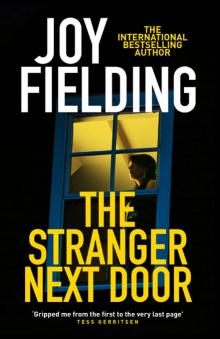 The Stranger Next Door
The Stranger Next Door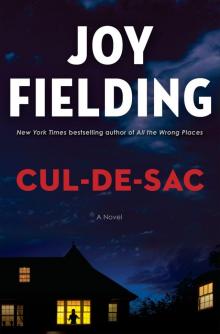 Cul-de-sac
Cul-de-sac The Final Act
The Final Act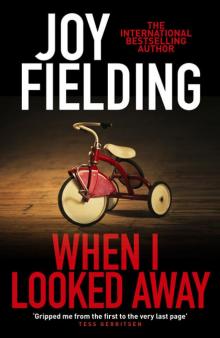 When I Looked Away
When I Looked Away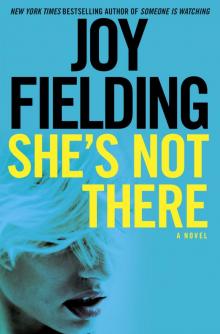 She's Not There
She's Not There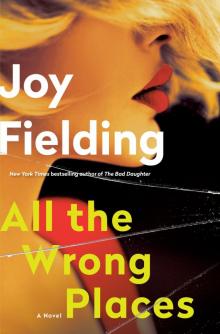 All the Wrong Places
All the Wrong Places Now You See Her
Now You See Her Don't Cry Now
Don't Cry Now Good Intentions
Good Intentions Still Life
Still Life Lost
Lost The First Time
The First Time Whispers and Lies
Whispers and Lies The Other Woman
The Other Woman Charley's Web
Charley's Web Mad River Road
Mad River Road Puppet
Puppet Life Penalty
Life Penalty The Wild Zone
The Wild Zone Home Invasion
Home Invasion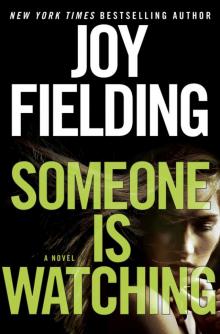 Someone Is Watching
Someone Is Watching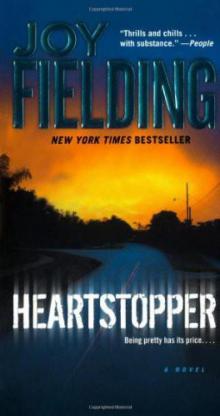 Heartstopper
Heartstopper See Jane Run
See Jane Run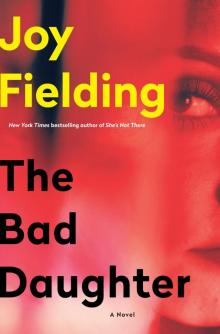 The Bad Daughter
The Bad Daughter Shadow Creek
Shadow Creek Missing Pieces
Missing Pieces Kiss Mommy Goodbye
Kiss Mommy Goodbye Grand Avenue
Grand Avenue